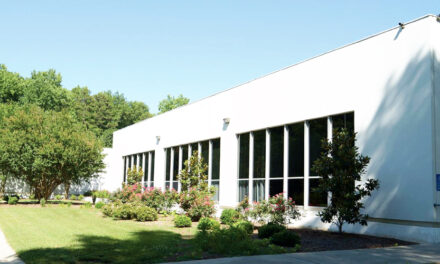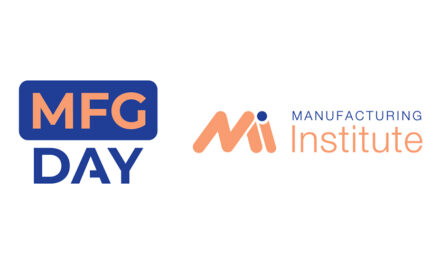What is a Case Study?
Case studies are used to examine real-world problems and solutions in daily business operations. From case studies, researchers, start-ups and founders can identify best practices, share strategies, and lessons learned within various industries large and small.
NC State IES, the Advanced Functional Fabrics of America (AFFOA) and other partners are participating in a project funded by NextFlex, a DoD-funded Manufacturing USA Innovation Institute to develop and implement a sustainable and replicable model to create the next-generation workforce needed to propel the North Carolina textile economy forward.
The AFFOA Textile Manufacturing Convening Session took place in two parts. Part 1 on Technology and Innovation took place on Tuesday, November 9, 2021. Unifi and Parkdale Mills were two case studies presented in the Part 1 session.
The first case study was Unifi. Dr. Edmir Silva (Director, Brand Sales, Market & Concept Development at Unifi) posed the question, “How can technology impact our business?”. Sharing Unifi’s journey can shed light on the technological impacts to the industry and explore the evolution of technology, both tangible and intangible changes. While these are complex problems, the goal is to make life easier and better for the consumer. Simultaneously, consumers now have more time to experience products, have access to research products, quickly find out information about products, and explore the diversification of products. Labor can present challenges with disruptions from digital and automation options in the marketplace. An industry leader such as Unifi must adapt to use these technologies, for example, digital solution automation, to help them in the future.
In the early to mid-2000s, Unifi started looking more into sustainable products and recycling. The recycling brand REPREVE® reached the market in 2007. By 2011, the REPREVE® recycling center opened to facilitate the recycling process and accommodate the evolving technology. In 2016, Unifi opened the REPREVE® Bottle Processing Center. Unifi was able to boast that the company had transformed its ten billionth plastic bottle via the global supply chain and focused on sustainable solutions in 2017. In 2021, Unifi will have recycled the equivalent of 30 billion plastic bottles. While this may seem like a short journey, this venture has taken 15 years to build something significant in the market.
REPREVE® is a recycled fiber made from recycled plastic bottles converted into things that consumers wear or use. Post-consumer recycled plastic bottles are collected, sorted, and baled. They are then cleaned (washed) and chopped into a high-quality REPREVE® flake and then melted and formed into a REPREVE® chip. A single silo at the facility holds a million pounds of REPREVE® chips, equivalent to 27 million recycled plastic bottles. The REPREVE® chips are then melted and extruded into yarn to make REPREVE® recycled fiber. The REPREVE® recycled fibers become sustainable fabrics that are then cut and sewn into products. Sustainability has gone from a nice to have (Baby Boomers), to want (Gen X), to an expectation (Millennials), to a demanded aspect (Gen Z).
The second case study was Parkdale Mills. Charles Heilig (President & CEO, Parkdale Textile Division at Parkdale Mills) posed the following questions about labor challenges, “What does it look like for 2021 and beyond, and what are some of the challenges we face?”. The commoditization of apparel practically wiped the entire US textiles supply chain out. Parkdale Mills is now trying to lead a revolution that uses technology to bring back those products to the United States. With a rise of synthetics, Parkdale Mills wanted to develop an opportunity to give its customers the ability to dye Poly-Cotton blends and synthetic cotton as fast as they could 100% natural cotton and at a lower temperature. Dytru® doesn’t use as much water, doesn’t need as much energy, and is more compatible with other products. Dytru® dyes at 99⁰C, dyes faster, have excellent colorfastness, fewer dyestuffs, and are cleaner effluent. Dytru® saves a lot of money, saves a lot of time, and is suitable for the environment. The goal is for dytru® to be a solution for Parkdale Mills’ customers to have a more sustainable option for apparel end-uses. Parkdale Mills can inject and put stuff into fiber or yarn that improves the product, for example, anti-microbial products, wound healing effects, and biodegradable products.
Due to a lack of labor force with the necessary skills, Parkdale Mills built an Advanced Material Team from scratch. After four years of hard work and training, Parkdale now has the advanced materials team they expected to make years ago. It is challenging with the demise of the domestic textile industry from the mid-1990s till today. You cannot find somebody with 15 or 16 or 20 years of experience who can come in and make an immediate impact. Instead, it would be best if you built a team from scratch.
The Norbie is a robot that automatically pieces up a ring spinning frame, which is a manual process worldwide. Engineering didn’t exist here in the United States to build the technology here because of the market size and expected revenue. Parkdale couldn’t find a clear and readily available path towards the domestic creation of this robot and ended up with an OEM manufacturer. Parkdale has purchased over 120 of these robots in the past three years. Parkdale replaces entry-level labor with an associate requiring higher education and a higher degree. Parkdale is hiring people who understand PLC programming, understand sequencing, and understand different maintenance requirements associated with this technology. These jobs are much higher paying than traditional manufacturing.
Soon every role in the entire company will need to be able to read, write, understand basic programming and systems, and use different ERP systems and maintain them. Unfortunately, more and more high school graduates are functionally illiterate and somehow getting through this system. The other difficult labor challenge is finding people with soft skills. Today’s labor force doesn’t want to work a fixed schedule, and they don’t want to work under fixed maintenance requirements. This new generation is incredibly innovative and forward-thinking, has fantastic ideas for improving things, and wants more work-life balance.
In brief, both Unifi and Parkdale Mills presented challenges they’ve been facing in meeting consumer demands in the current marketplace. They discussed the development of new technologies, the impacts of automation, the fact that it can take years for ideas to come to fruition, the evolving process of innovation, and labor needs. Unifi has developed REPREVE®, and Parkdale Mills has developed dytru® as innovative sustainable fabrics. Sustainability is a primary concern for Unifi, Parkdale Mills, and the entire textile industry.












